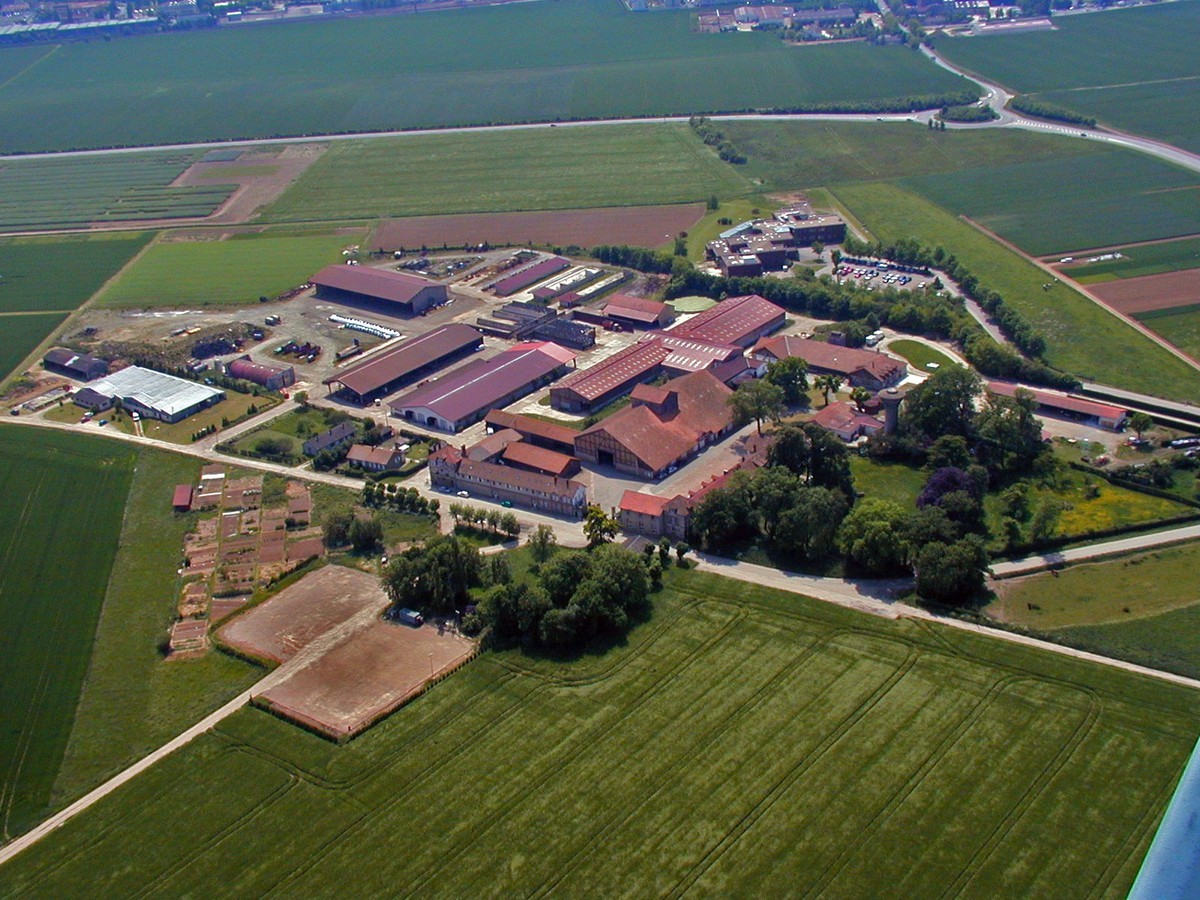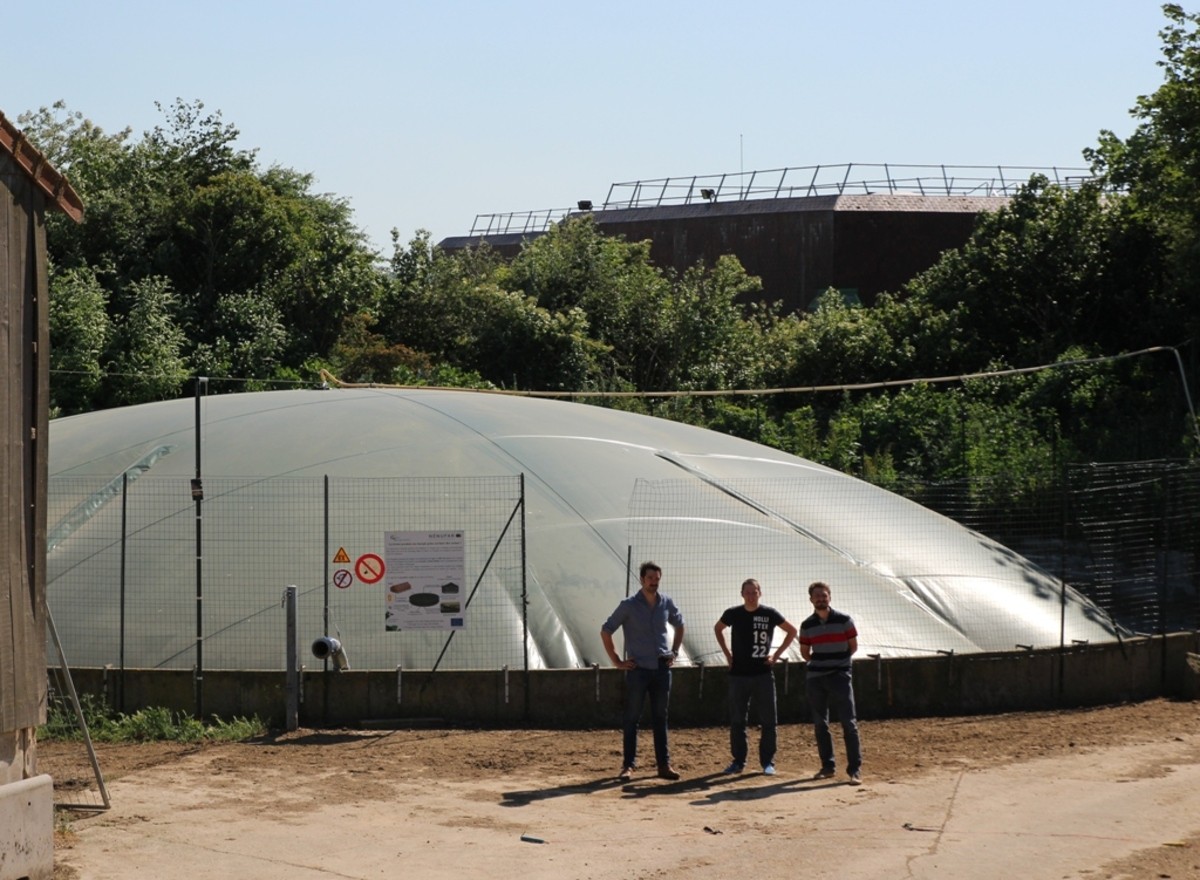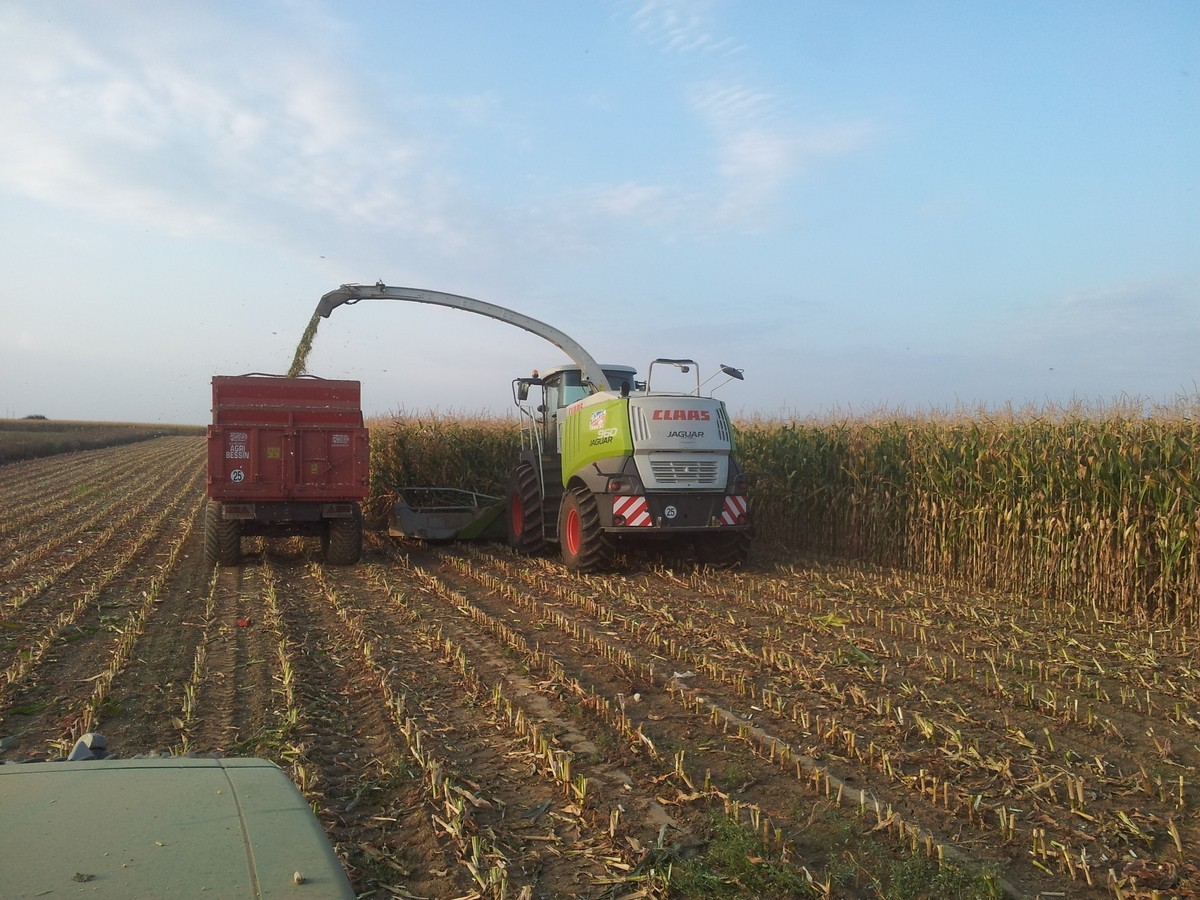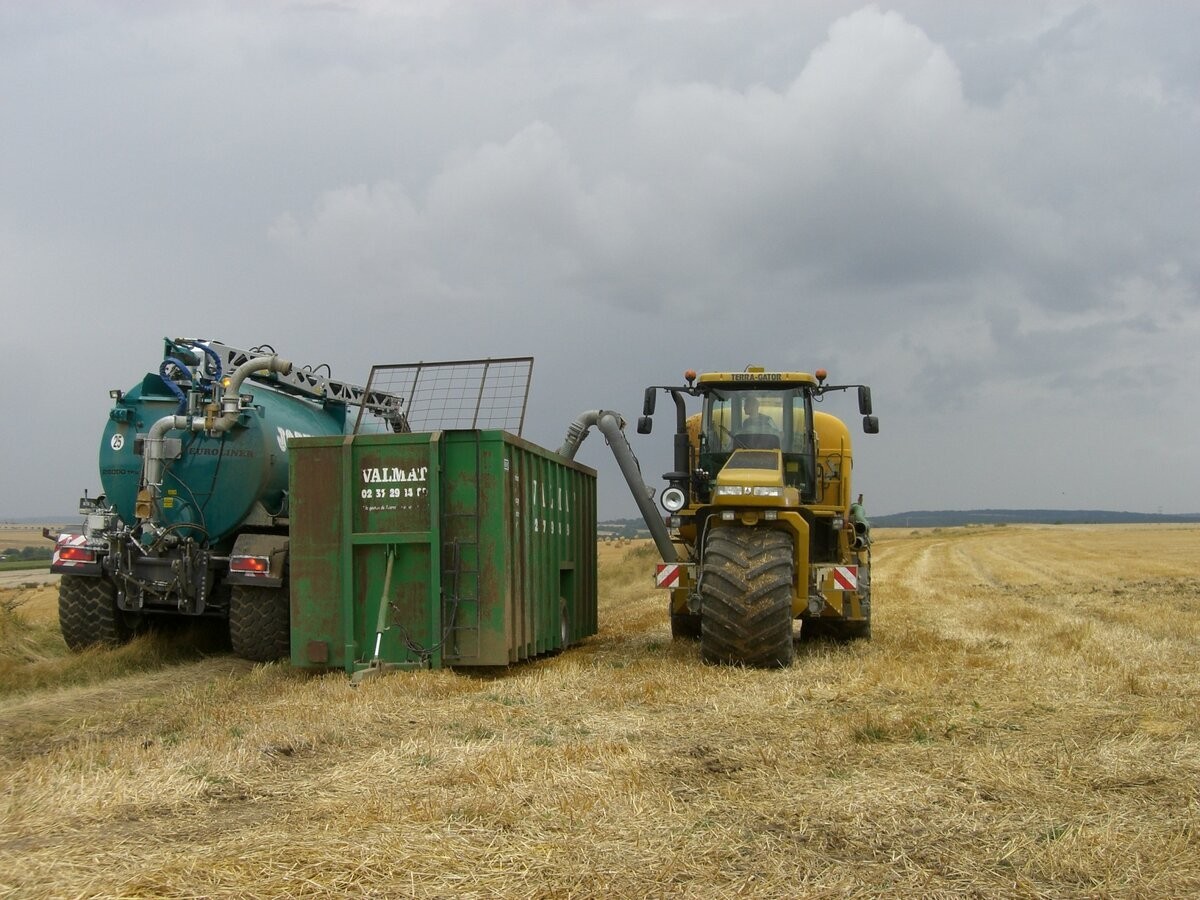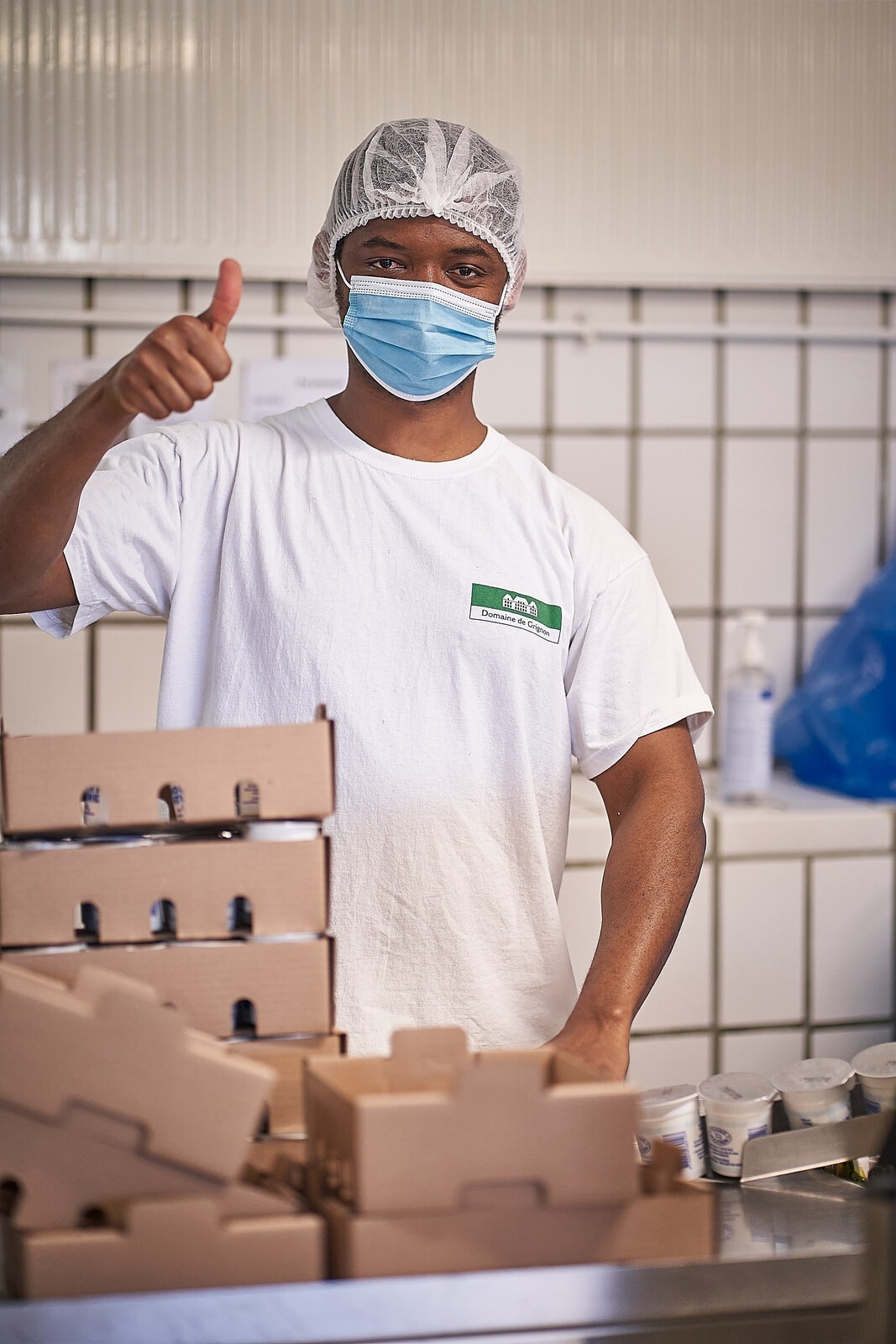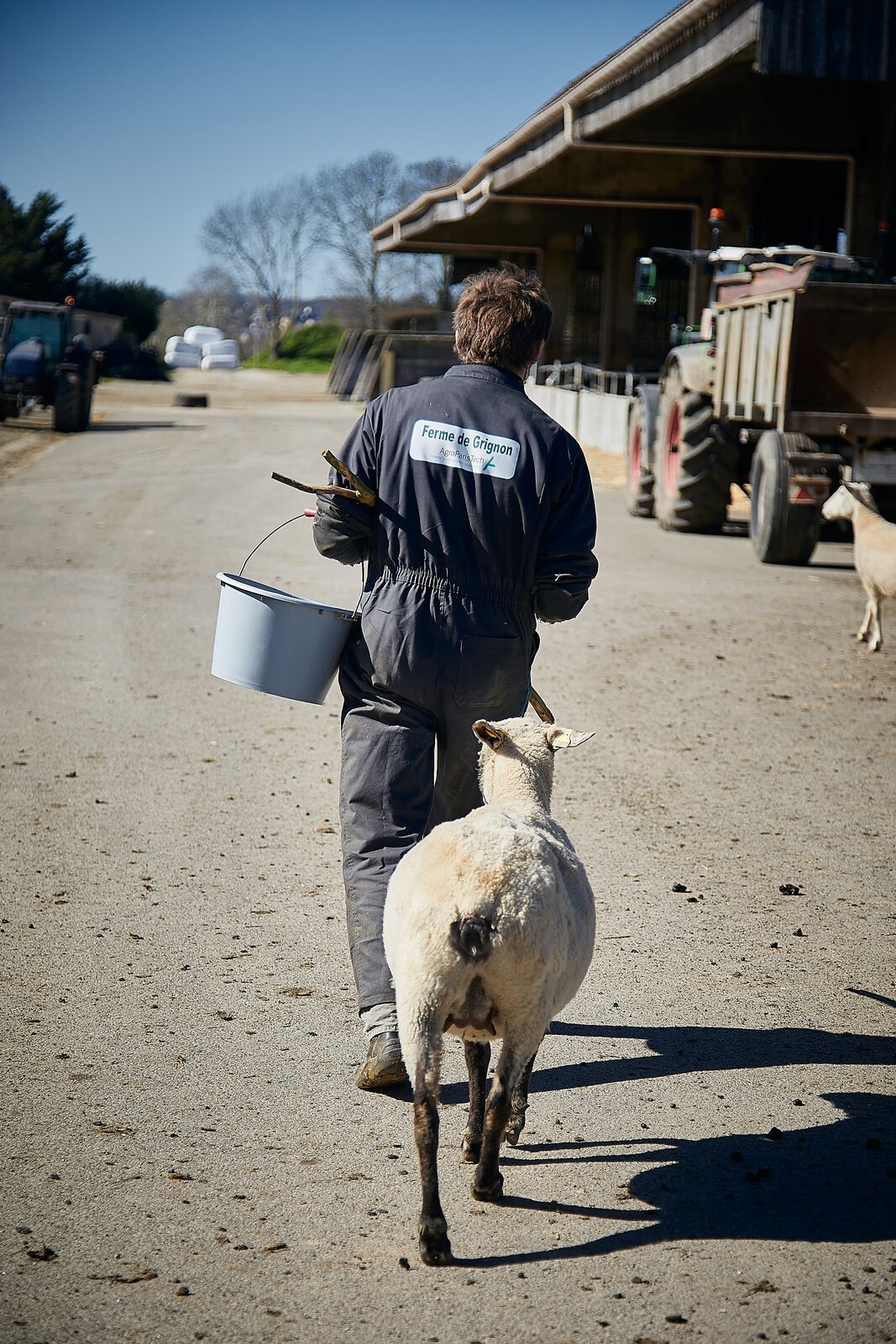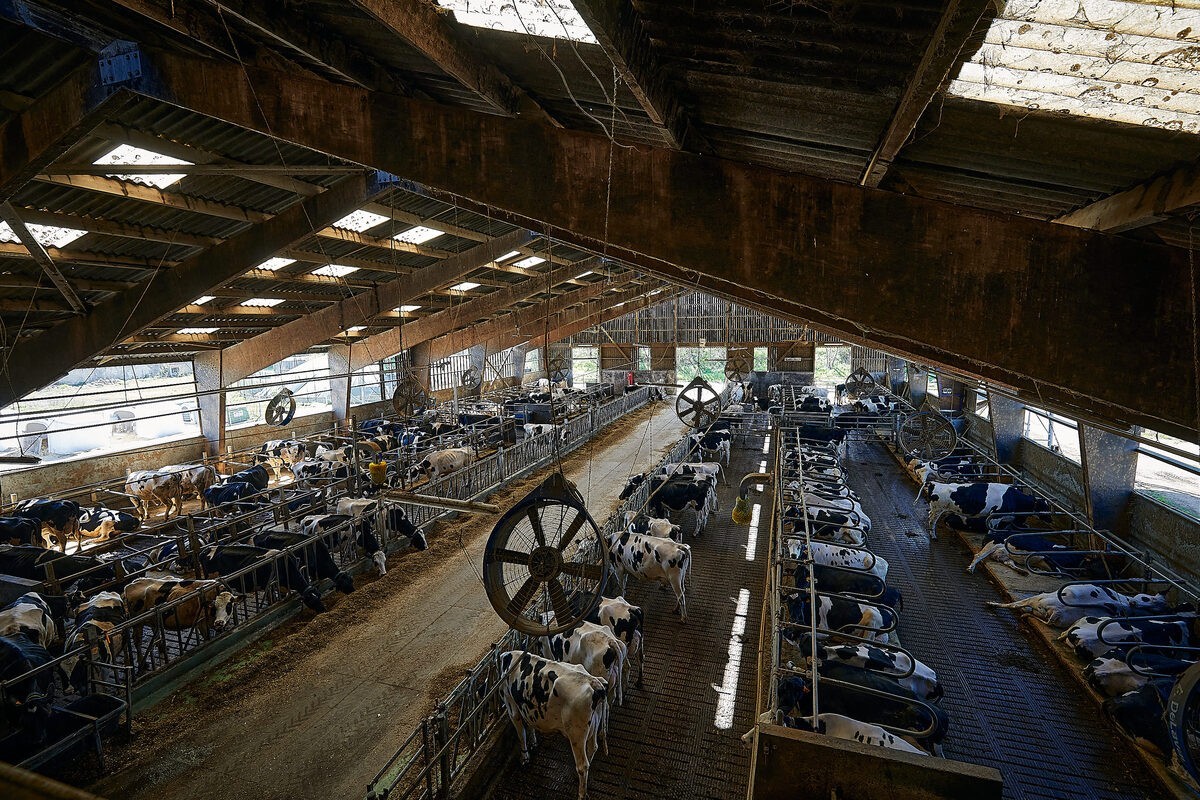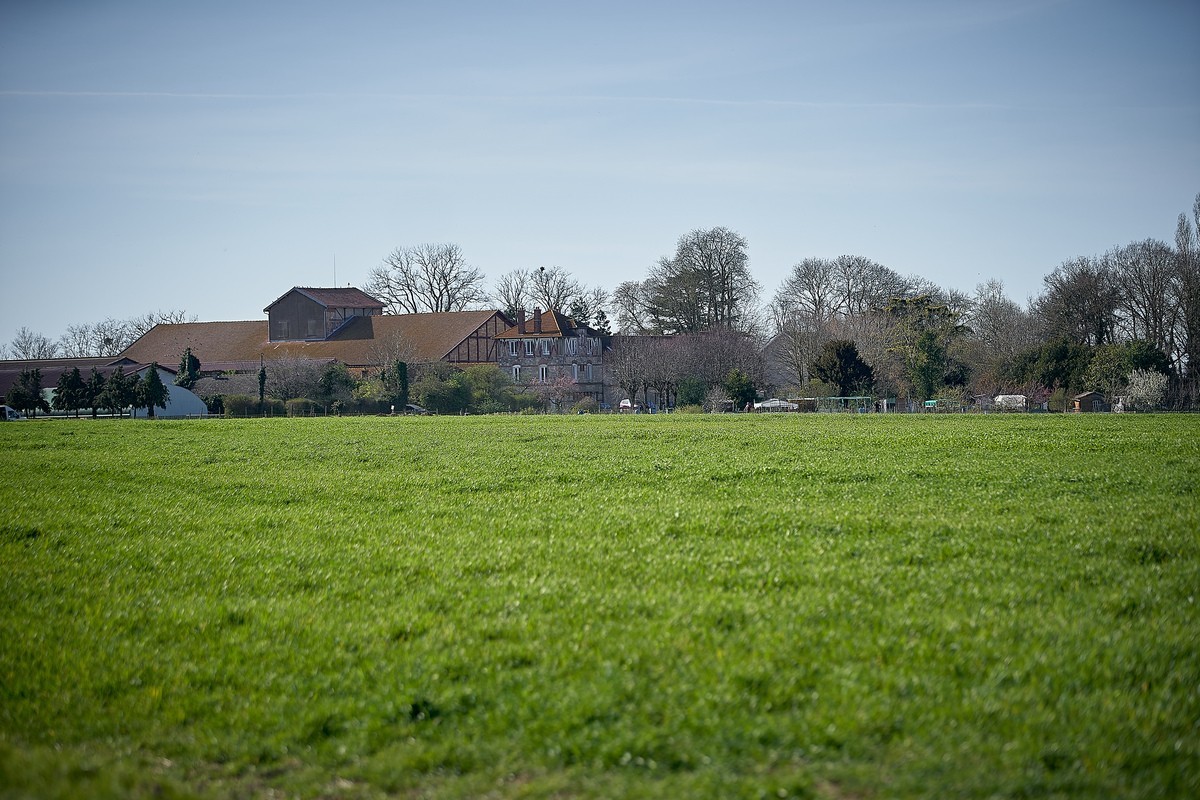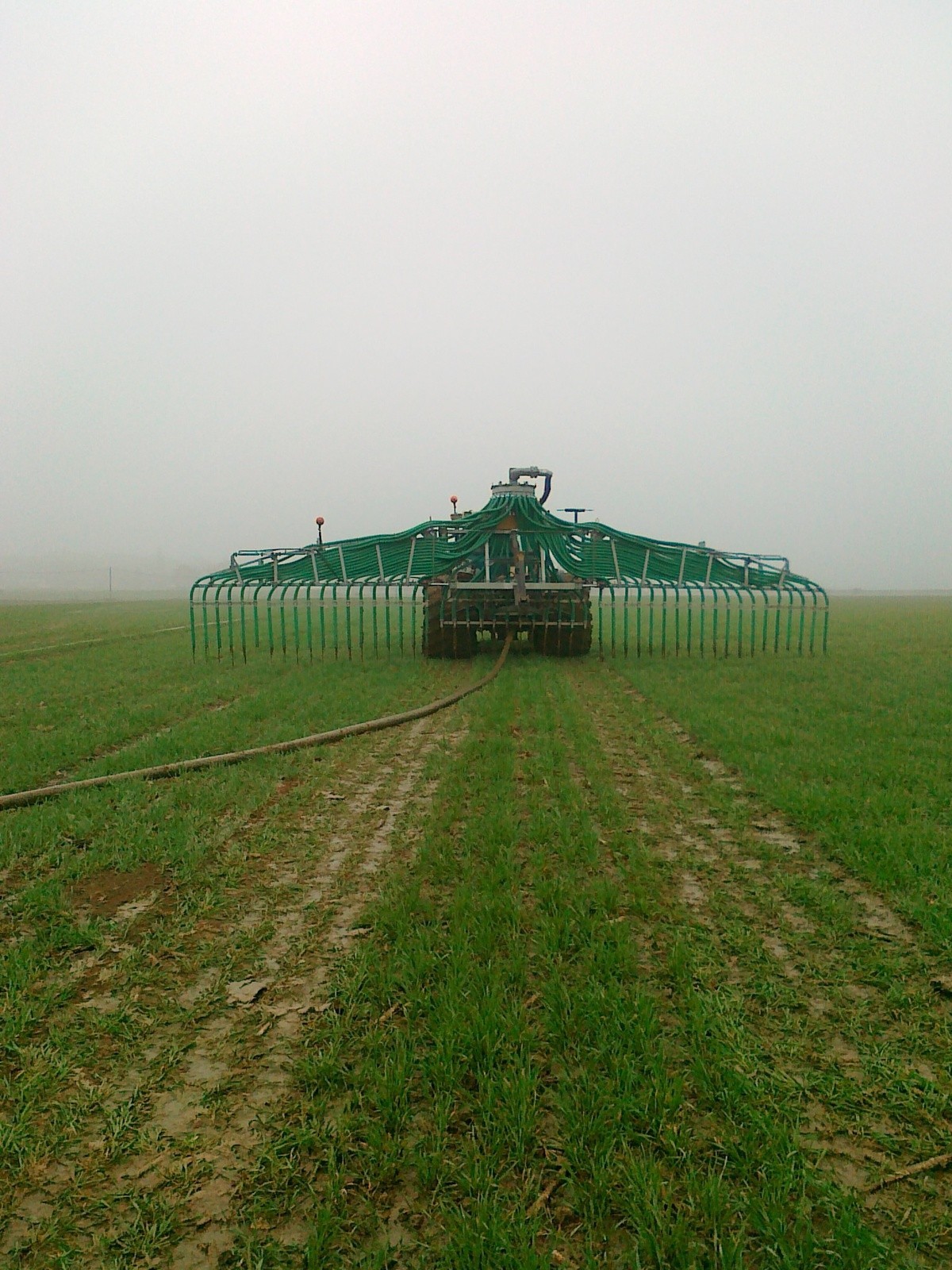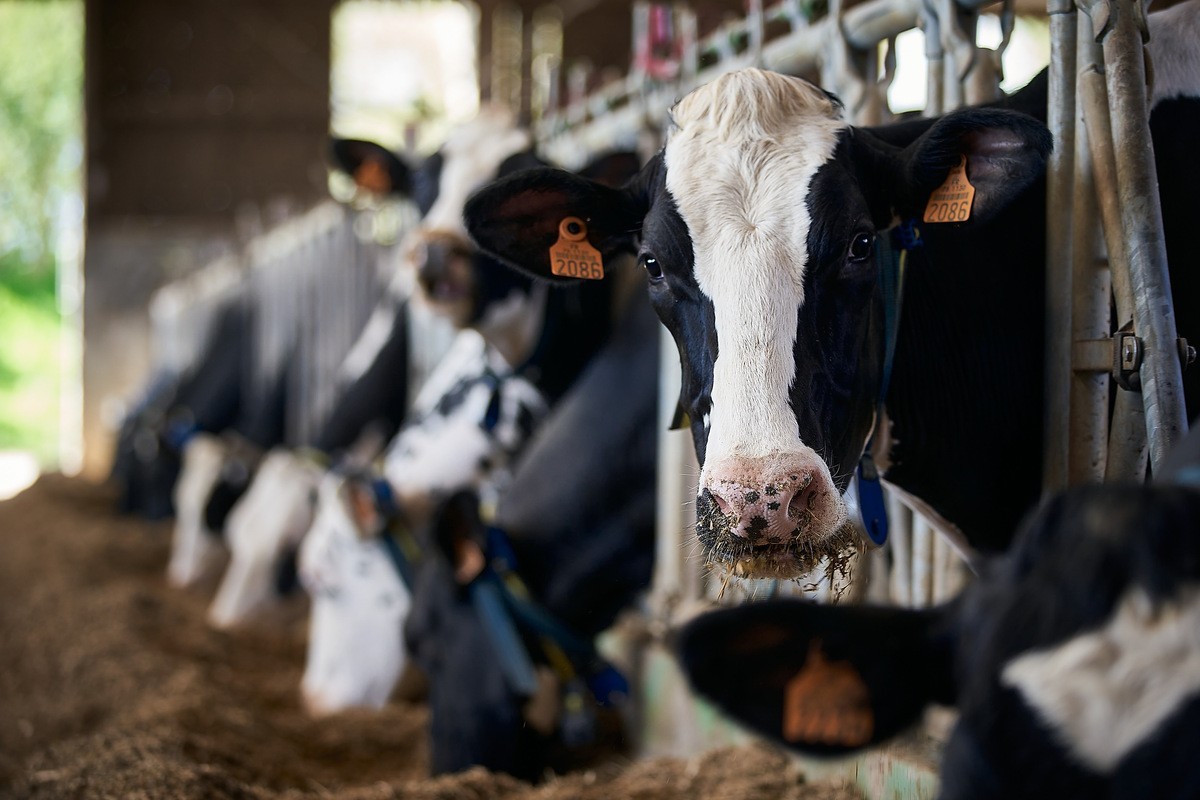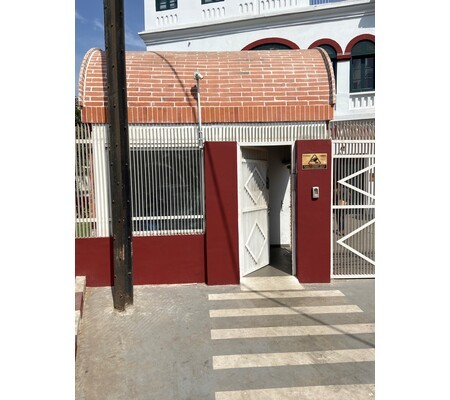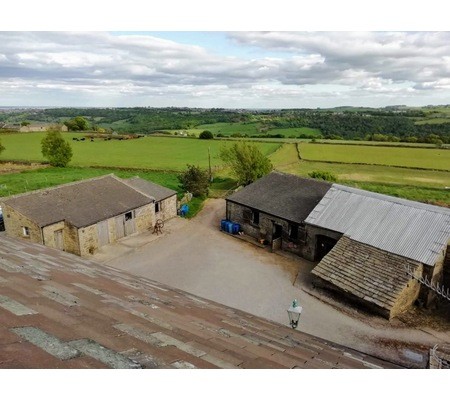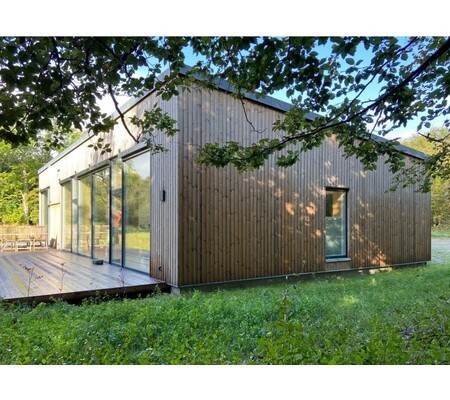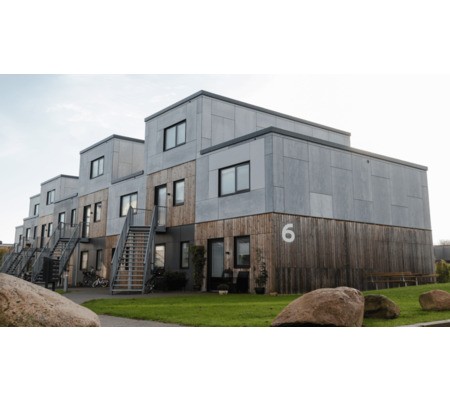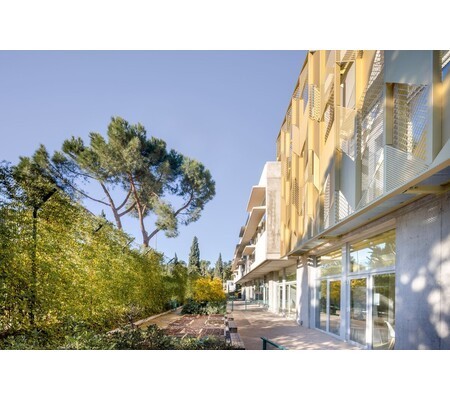The Grignon farm - an experimental site with positive energy
Last modified by the author on 09/03/2023 - 08:55
- Year of commitment : 2023
- Address 1 - street : Route de la Ferme 78850 THIVERVAL GRIGNON, France
- CO2 Impact : 1700 tonnes eq CO2 / an
- Green energies : Energy production, Biogas, Gas
- Circular economy and waste management : Circular economy, Waste Recycling, Methanation, Optimization of ressources, Organic recycling, Methanation unit
-
3 300 000 €
Site attached to the AgroParisTech higher education establishment, the experimental farm of Grignon in the Yvelines (78) makes it possible to research, develop, test and support various agricultural innovations. Open to the general public, it also has an educational dimension. In a logic of innovation at the service of sustainability, projects aiming to produce the energy necessary for the activities are emerging, in particular thanks to the recovery of the slurry/manure generated on the farm for the purpose of producing green gas. The Grignon farm has been ISO 14001 standardized since 2014, ISO 50001 since 2019, HVE 3 since 2016 - the first in mixed farming for this last element.
An educational and economically viable site
Administratively attached to AgroParisTech, the farm has developed an entrepreneurial model. For this, it covers 400 hectares of cultivation - half for sale and the other for the production of fodder. The farm has 200 dairy cows and 600 ewes. A dairy factory is dedicated to the production of various dairy products which are then sold in a short circuit.
The farm also attracts many visitors - around 38,000 each year. Unaccompanied visitors, school groups and professionals from the sector benefit from various tours, more or less technical, centered on understanding the functioning of agricultural activities and raising awareness of the environmental and nutritional issues associated with them. Researchers and professionals also benefit from an in-depth study of the experiments and research projects piloted on site.
Agricultural experimentation and innovation
50 hectares are reserved for the Trajectory experimental platform, which tests seven different cropping systems, for example on conservation agriculture or organic agriculture. These systems reproduce the methods and tools of regional farmers and measures are implemented to assess their performance and determine areas for optimization. The precise spraying of inputs thanks to artificial intelligence and the measurement of nitrous oxide are also studied on the site.
Since 2009, scientists at the establishment have been using the herd of dairy cows to establish a measurement of enteric methane emissions on cows in production.
Finally, the Farm'InnLab is a third place allowing the holders of various innovative projects to be supported technically and scientifically. Concretely, innovative start-ups are welcomed and develop virtuous programs in terms of agriculture, livestock or energy production. Global support is offered and innovations are tested directly on site. At the same time, the initiative encourages synergies between students, teacher-researchers, technical staff and project leaders.
The Nénufar project: a methane recovery system
Beyond agricultural innovations, since 2006 the Grignon farm has been thinking about its consumption of fossil fuels and its production of agricultural waste, in particular manure from livestock farms. The Grignon Energie Positive program was implemented to explore technical solutions to these challenges. The recovery and recovery of biogas then became an effective and viable first response.
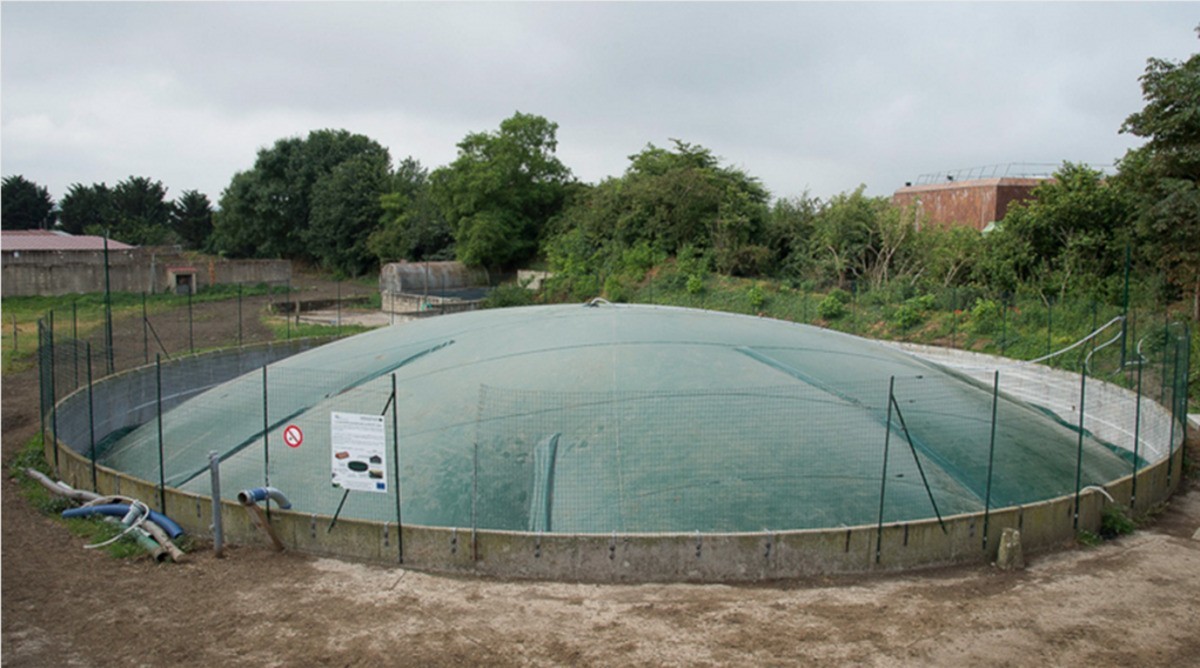
A Nénufar cover - the first startup supported on the farm of Grignon - was installed on the 1,300m3 usable cattle manure pit. This cover makes it possible to directly store the biogas which is then sent to the boiler of the dairy processing workshop. The energy is finally used for the production of domestic hot water and, since 2014, for the pasteurization and steaming of yoghurts. Between 100 and 200Nm3 of biogas are recovered every day.
A methanization unit to supply the site with biomethane, a renewable gas produced locally with farm / local waste
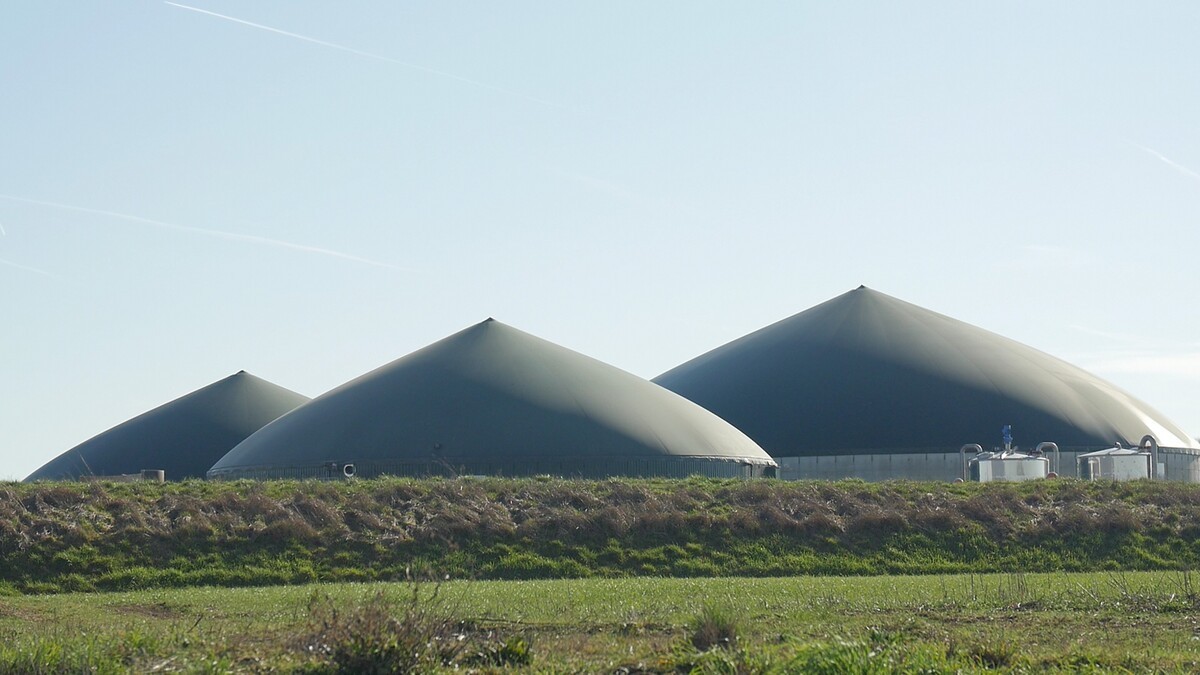
And why not develop biogas production to turn the site into a positive energy farm? The next stage of the Grignon Energie Positive program focused on the creation of a methanation unit capable of recovering livestock effluents and agricultural waste, thanks to the Grignon Bioenergy project.
Anaerobic digestion, thanks to a natural phenomenon of degradation of organic matter by bacteria, transforms waste and/or organic residues (livestock effluents, bio-waste, agricultural residues, etc.) into two recoverable products:
- Biomethane, a 100% renewable gas injected into the natural gas distribution network operated by GRDF. It then makes it possible to supply renewable and local energy to the traditional uses of natural gas: hot water, cooking, heating and fuel;
- The digestate, a natural and organic fertilizer spread on the agricultural surfaces and the green spaces of the territory.
85% of the recovered effluents come from the farm, the rest being made up of horse manure collected in equestrian centers located less than 5km away. Eventually, the device will make it possible to extract methane from 5,500 tonnes of slurry and 5,000 tonnes of manure. 50 Nm3 of biomethane will be produced every day, and then injected into the local GRDF network from July 2023, making it possible to supply the energy needed by more than 1,000 households. The installation will be self-sufficient in energy since it will operate with part of the biomethane produced (about 6%).
The recovery of the digestate - organic fertilizer produced following the methanization process - will be done by spreading, mainly on the farm, and around 15% will be spread in partnership with neighbors in exchange for the horse manure collected, but always within a radius close to a few kilometers.
The impact of the methanisation unit is estimated at around 1,700 tonnes of CO2 equivalent saved per year.
Progress Status
In progress
Data Reliability
Self-declared
Funding Type
Private
Website Enterprise / Infrastructure
https://www.fermedegrignon.fr/Sustainable Development
- Students and researchers from the AgroParisTech establishment who can develop and test their innovations;
- The general public and professionals in the agricultural sector who wish to visit the site and discover the experiments in progress;
- Startups supported by the Farm'InnLab;
- The companies and partners ensuring the implementation of the Grignon Positive Energy program and the biogas installations;
- The economic interest grouping of agricultural education establishments which manages the agricultural and dairy products shop.
- Soil conservation agriculture
- Low carbon
- Feeding performance
- Reference Grignon Farm
- Low inputs
- Organic Agriculture
- Polyculture farming
Governance
AgroParisTech
Partners of the Grignon Bioenergy project (methanization unit):
| Partners | Type of activity |
|---|---|
| OPAL | Subject mastery |
| ROTAGUIDO | Anaerobic digestion process |
| WATELET | Earthwork / carcass work |
| SOTRABAT | Masonry |
| SATELEC | Electricity |
| PRODEVAL | Purification |
| DIVA Plastics | Digestate storage |
| GRDF | Biogas injection |
The Grignon farm has developed a viable economic model thanks to its experimental activities and the sale of products from agricultural and animal exploitation. Dairy products processed on site are sold at the Boutique Gourmande, an entity independent of the farm but housed on its estate and managed by the economic interest group of agricultural education establishments.
The estimated overall budget for the methanization unit is 3.3 million euros, for a theoretical payback period of nine years. 33 employees are present on the site to carry out these activities.
Sustainable Solutions
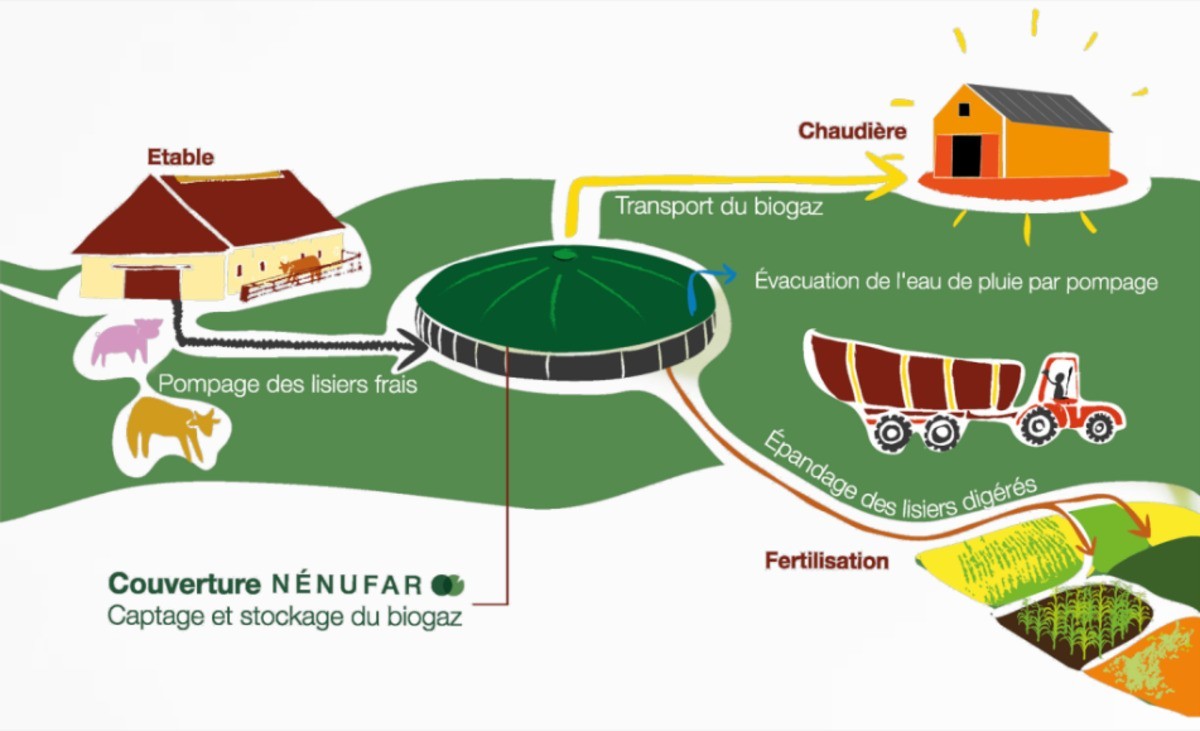
Nénufar cover
The Nénufar cover is a patented innovation, made to measure in France, which can be easily installed in slurry pits. It covers the latter thanks to a pneumatic frame and a ballasting system. The biogas naturally produced by the effluents stored in the pit is thus captured and stored, in order to be recovered.
More than 90 covers have already been installed (as of February 1, 2023).
https://nenufar.fr/Photo credit
Christophe Peus / GRDF
Reasons for participating in the competition(s)
La ferme expérimentale de Grignon s'engage dans plusieurs activités à caractère durable : la recherche de systèmes de culture optimisé au niveaux environnemental, économiques et technique, la sensibilisation des populations aux enjeux écologiques liés à l'agriculture et la volonté de produire de l'énergie.
Les démarches d'optimisation des systèmes de culture et de valorisation des déchets et effluents par la méthanisation sont vouées à être reproduites sur le territoire, pour promouvoir une agriculture plus respectueuse et de la production de gaz renouvelable local.




